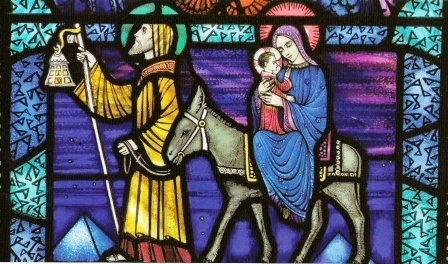ST. JOSEPH MMXI.
 |
| Signs of Spring |
‘He named him Jesus’. (Mt. 1:25 ).
Names are important. They can never be mere tags or labels. They can influence a persons’ whole life. So actors and singers and authors change their name to something that might bring them fame.
It’s not just personal names that count. You don’t have to be an advertising expert to know that the name of a product can be vital for its success in terms of sales.
Places, cities, countries find themselves with different names when there is a revolution or major change of values in a society: in Russia, St. Petersburg became Leningrad after the revolution of 1917, only to become St. Petersburg again at the end of the century. In Glasgow’s city centre, St. Vincent Place became Nelson Mandela Square not so long ago thereby reflecting the values of the city leaders.
Trends in personal names are due to the vagaries of fashion rather than anything political. How many Zoes or Carmas or Zanders or Zaks were in your class at school ?
St. Joseph gave a name to his spouse’s child, a name which means ‘Yahweh saves’, or to keep it simple ‘God saves’.
What St. Bernard says of this name in his Fifteenth Sermon on the Song of Songs is well known ‘ when preached it gives light, when meditated it nourishes, when invoked it relieves and soothes’. ‘ It is honey in the mouth, music in the ear, a song in the heart’.
Only decades before St. Bernard preached these words, St. Anselm prayed in a similar vein: ‘ Jesus, for your name’s sake deal with me according to your name. Dear name, name of delight, name of comfort to the sinner, name of hope’.
The Old Testament was a preparation for the New just as the physical is a foundation for the spiritual.
Do even the names in the Old Testament fit this pattern ? Do they anticipate the power of Jesus’ name in any way ?
The personal names of the Old Testament may sound strange but it is a different matter with many of the places of the lands of the Bible: the splendour of Carmel, the rose of Sharon, the vines of Engedi, Gilead, Beersheeba, Bethel where God spoke to Jacob, the highlands of Ephraim, the valley of Jezreel and the most haunting of all the places of the Old Testament, the Garden of Eden.
If it is the sound of these names that attracts then perhaps it is only in preparation for that name whose attraction would be in its meaning, the name which Joseph gave to Mary’s child.
God saves – through the sacrifice of Jesus on the Cross. The Cross and the name of Jesus are inseparably linked.
The Cross is a powerful symbol or sign, as the radical secularists and humanists well understand. In their efforts to remove religion from the public sphere, crosses and crucifixes have been prime targets.
A woman once went to see a priest about her little daughter. The woman was a lapsed Catholic but she wanted her daughter brought up with some sense of the Catholic faith and asked the priests’ advice. The priest suggested that she put up a crucifix at home in a place where the child would easily notice it. The woman was bemused not to say scandalised by the suggestion. She wanted to hear something altogether more subtle and sophisticated. The priest knew what the woman did not – the power of symbols to influence us at a level beyond words and arguments.
Adolf Hitler has been described by an historian as an ‘evil genius’. His evil we all know about. His genius was in the adoption of the swastika as the symbol for his Nazis. The swastika is a prehistoric and probably religious symbol used widely throughout Europe and beyond. Like everything else, symbols can be used for good or for bad.
According to St. Gregory of Nyssa, the four arms of the Cross point north, south, east and west thereby indicating that Christ saves the WHOLE world by his death on the Cross.
Jesus himself, of course, is the ultimate symbol. As Karl Rahner put it: ‘ the Incarnate Word is the absolute symbol of God in the world, filled as nothing else can be with what is symbolised.’
Jesus’ destiny as Saviour is contained in his name. When Joseph named the new born child, did he have a troubled glimpse, just as Mary did at the Presentation, of where that name would lead the child in later life ?













